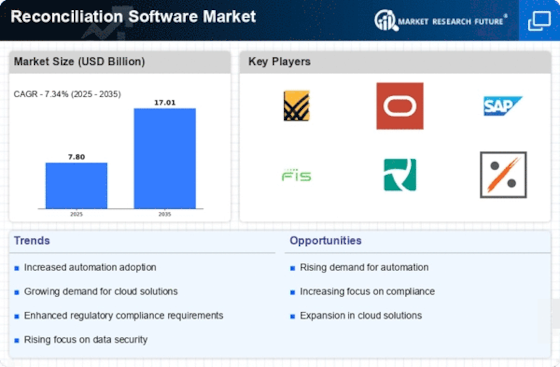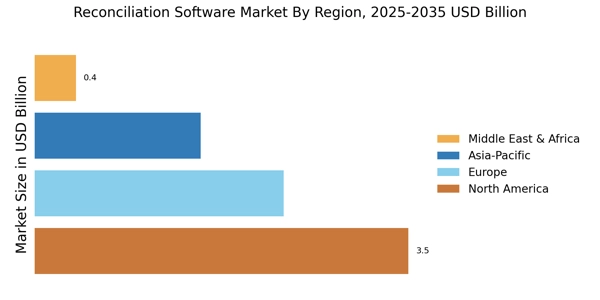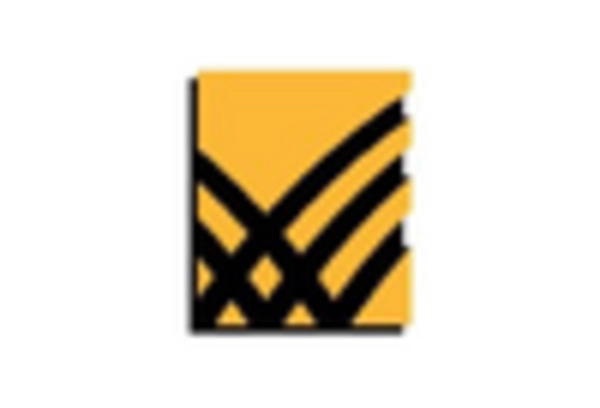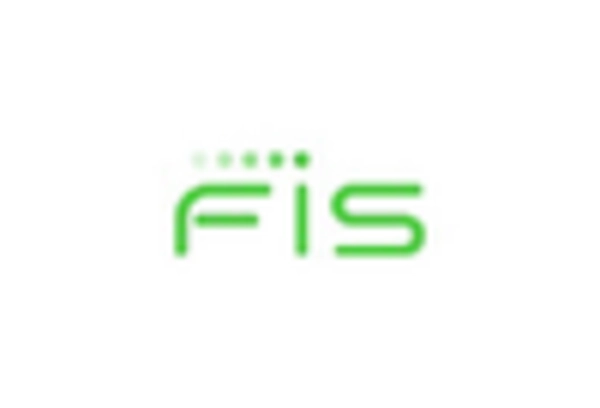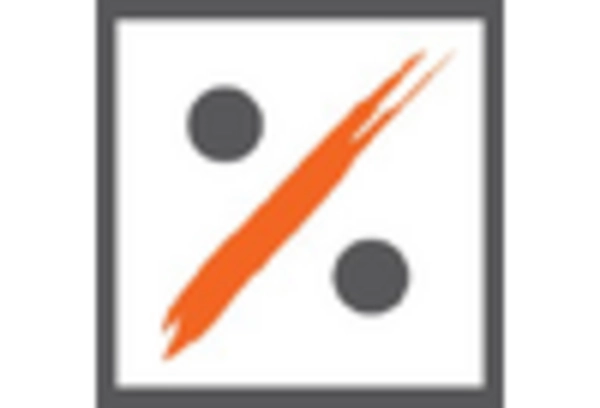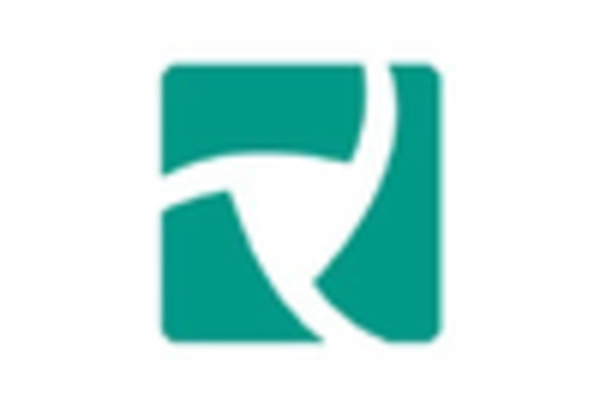Growing Focus on Cost Efficiency
The Reconciliation Software Market is increasingly driven by a growing focus on cost efficiency among organizations. As businesses face pressure to optimize their operational costs, the adoption of reconciliation software emerges as a viable solution to streamline financial processes. By automating reconciliation tasks, companies can significantly reduce labor costs and minimize the risk of human error, which can lead to costly discrepancies. Market analysis indicates that organizations implementing reconciliation software can achieve cost savings of up to 30% in their financial operations. This emphasis on cost efficiency is prompting more companies to invest in reconciliation solutions that not only enhance accuracy but also contribute to overall financial health. As the demand for cost-effective financial management solutions continues to rise, the Reconciliation Software Market is poised for sustained growth.
Regulatory Compliance Requirements
The Reconciliation Software Market is significantly influenced by the evolving landscape of regulatory compliance. Organizations are compelled to adhere to stringent financial regulations, which necessitate accurate and timely reconciliation of financial data. The increasing complexity of compliance requirements, such as those imposed by financial authorities, has led to a heightened demand for reconciliation software that can automate and streamline these processes. Companies that fail to comply with regulations face substantial penalties, making the adoption of reconciliation solutions a strategic imperative. Recent statistics suggest that firms utilizing reconciliation software are better positioned to meet compliance standards, thereby reducing the risk of financial misstatements. This trend underscores the critical role of reconciliation software in helping organizations navigate the intricate web of regulatory obligations, thereby driving growth within the Reconciliation Software Market.
Enhanced Data Analytics Capabilities
The Reconciliation Software Market is benefiting from enhanced data analytics capabilities that reconciliation software solutions offer. Organizations are increasingly recognizing the value of data-driven insights in their financial operations. Advanced reconciliation software provides robust analytics tools that enable businesses to identify trends, detect anomalies, and make informed decisions based on real-time data. This capability is particularly crucial in a landscape where financial data is vast and complex. Recent findings suggest that companies utilizing advanced analytics in their reconciliation processes can improve their decision-making speed by up to 40%. The integration of data analytics into reconciliation software not only enhances operational efficiency but also empowers organizations to proactively manage their financial health. As the demand for data-driven decision-making grows, the Reconciliation Software Market is likely to expand, driven by the need for sophisticated analytical tools.
Increasing Demand for Financial Accuracy
The Reconciliation Software Market is experiencing a surge in demand for financial accuracy as organizations strive to maintain precise financial records. This demand is driven by the need for timely and accurate financial reporting, which is essential for decision-making and regulatory compliance. According to recent data, companies that implement reconciliation software can reduce discrepancies by up to 80%, thereby enhancing their financial integrity. As businesses expand and transactions become more complex, the necessity for robust reconciliation solutions becomes increasingly apparent. This trend indicates that organizations are prioritizing investments in reconciliation software to ensure that their financial operations are not only efficient but also transparent and reliable. Consequently, the growth of the Reconciliation Software Market is likely to continue as more companies recognize the value of accurate financial management.
Rise of Digital Transformation Initiatives
The Reconciliation Software Market is witnessing a notable rise in digital transformation initiatives across various sectors. As organizations increasingly adopt digital technologies, the need for efficient reconciliation processes becomes paramount. Digital transformation not only enhances operational efficiency but also facilitates real-time data access, which is crucial for effective reconciliation. Companies are investing in reconciliation software that integrates seamlessly with their existing digital infrastructure, allowing for automated data synchronization and error reduction. This shift towards digital solutions is reflected in market data, indicating that organizations leveraging advanced reconciliation software can achieve up to 50% faster reconciliation times. The ongoing digital transformation efforts are likely to propel the growth of the Reconciliation Software Market as businesses seek to modernize their financial operations and improve overall performance.


